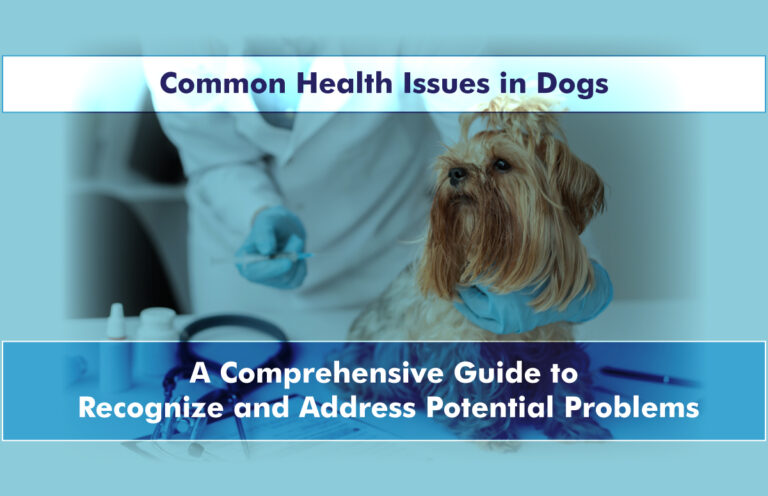The Emotional and Mental Benefits of Owning a Pet: A Source of Joy, Support, and Healing
Table of Contents
- Introduction
- 1. Unconditional Love and Companionship:
- 2. Stress Relief and Relaxation:
- 3. Alleviating Loneliness and Boosting Social Connections:
- 4. Emotional Support and Empathy:
- 5. Promoting Physical and Mental Health:
- a) Physical Health Benefits:
- b) Mental Health Benefits:
- 6. Sense of Purpose and Responsibility:
- 7. Overcoming Depression and Anxiety:
- 8. Enhancing Cognitive Function:
- 9. Therapy and Healing:
- FAQ
- Conclusion
Introduction
Adding a pet into our lives is a decision that goes beyond mere companionship. It opens doors to a world of emotional and mental well-being. Pets can touch our hearts, uplift our spirits, and provide comfort and peace. This blog post will explore the profound emotional and mental benefits of owning a pet. From reducing stress and loneliness to promoting a sense of purpose and improving overall mental health, the positive impact of our furry friends is boundless.
1. Unconditional Love and Companionship:
Pets have an incredible ability to provide us with unconditional love and companionship. Their unwavering devotion and acceptance create a deep emotional bond that can profoundly impact our well-being. Here’s how:
Research has shown that pet owners experience higher self-esteem, belongingness, and meaningful existence than non-pet owners (Journal of Personality and Social Psychology, 2011). The presence of a pet offers a sense of purpose and fulfilment, knowing that there is a living being who relies on us for care and affection.
The love and companionship provided by pets are free from judgment or expectation. They offer a safe space to be ourselves without fear of rejection. Whether we’re happy, sad, or somewhere in between, our pets provide their comforting presence and emotional support.
Pets also serve as excellent listeners. They are always ready to lend an ear or a paw, providing a non-verbal outlet for our thoughts and feelings. Sharing our joys and sorrows with our furry friends can be immensely therapeutic, allowing us to express ourselves without fear of judgment or misunderstanding.
Pets provide a unique type of social support, promoting a sense of belongingness and reducing feelings of loneliness (Aging and Mental Health, 2009). The presence of a pet can alleviate feelings of loneliness and provide a sense of companionship. Particularly for individuals living alone or those experiencing social isolation, having a pet can fill a void and offer constant interaction and connection.
Moreover, our emotional bond with our pets can positively impact our mental health. They provide a sense of security and stability, helping to reduce stress, anxiety, and depression. When feeling overwhelmed or down, simply cuddling with our furry friend can bring us a sense of calm and comfort.
In summary, the unconditional love and companionship pets offer are genuinely priceless. They provide emotional support, acceptance, and joy in our lives. Whether experiencing a challenging day or simply seeking a companion to share our journey, our furry friends remind us of love’s power and the human-animal bond’s beauty.
2. Stress Relief and Relaxation:
One remarkable benefits of owning a pet is its ability to relieve stress and enable relaxation. In today’s fast-paced and often stressful world, finding ways to relax and unwind is crucial for our overall well-being. Here’s how pets can help us achieve a state of calm and tranquillity:
Various studies have shown that interacting with pets can significantly reduce stress levels. The simple act of petting a dog or cat has been found to lower cortisol levels, a hormone associated with stress, and increase oxytocin, a hormone known as the “love hormone” or “bonding hormone” (State University of New York at Buffalo 2002). This chemical response in our bodies helps to create a sense of relaxation and contentment.
Engaging in physical activity with our furry companions promotes their well-being and benefits our mental health. Pets, especially dogs, often require regular exercise, such as walks or playtime. Exercise releases endorphins, which are natural mood-boosting chemicals in our bodies. Taking our dogs for a walk or playing fetch in the park can help us release tension, clear our minds, and reduce feelings of stress and anxiety.
Pets have a way of grounding us and bringing us back to the present moment, away from the worries and stresses of daily life. The presence of a pet can also provide a soothing effect. The rhythmic sound of a cat purring or the gentle breathing of a dog lying next to us can create a peaceful ambience.

Confiding in our pets can be incredibly therapeutic, helping us release pent-up stress and providing a sense of relief. They offer a non-judgmental presence and a listening ear, allowing us to share our concerns and emotions without fear of criticism. Furthermore, the companionship of a pet can be a source of comfort during challenging times.
Pets can also help redirect our focus and shift our attention away from stressors. Playing with our pets, engaging in interactive toys or games, or even watching them explore their surroundings can distract us from our worries and bring us joy and lightheartedness.
In summary, the benefits of owning a pet provide a natural and effective way to reduce stress and promote relaxation. The physical touch, companionship, and calming presence of our furry friends have been proven to lower stress hormone levels and enhance feelings of well-being. Taking the time to interact with our pets and enjoy their company can bring us a sense of peace, balance, and rejuvenation in our often-hectic lives.
3. Alleviating Loneliness and Boosting Social Connections:
Loneliness can have a significant impact on our mental and emotional well-being. Fortunately, benefits of owning a pet can provide a powerful antidote to feelings of isolation and help foster social connections. Here’s how pets can alleviate loneliness and enhance our social lives:
For individuals living alone or those who may be isolated from family and friends, a pet can serve as a constant companion and source of unconditional love. The presence of a pet offers a sense of companionship and can help ease feelings of loneliness. Research has shown that pet ownership among older adults is associated with lower levels of loneliness and higher levels of social support (Aging and Mental Health, 2009).
Pets can act as social facilitators, helping us connect with others in our community. Walking a dog in the park or taking them to a pet-friendly gathering creates opportunities for interaction and conversation with other pet owners. These shared experiences can lead to new friendships, as people often bond over their love for animals.
Pets can also help break the ice and initiate conversations in social settings. Whether it’s a friendly encounter on a neighbourhood walk or a visit to the veterinarian, our furry companions can serve as conversation starters and provide common ground for interaction.
In addition to offline social connections, the online pet community has flourished recently. Social media platforms dedicated to pets have become popular, allowing pet owners to connect, share stories, and seek advice. Engaging with these online communities can provide a sense of belonging and create a network of like-minded individuals.
Furthermore, the responsibility of pet ownership can motivate individuals to participate in community activities. Whether attending training classes, volunteering at animal shelters, or participating in pet-related events, these engagements offer opportunities to meet and connect with others with similar interests.
It’s important to note that while pets can alleviate loneliness, they should not be seen as a replacement for human relationships. Maintaining a balance between our interactions with our pets and our social connections with family, friends, and the wider community is essential.
Pet ownership can help alleviate loneliness and enhance our social connections. Pets provide companionship, initiate social interactions, and open doors to a broader pet-loving community. By nurturing these relationships, we can experience the joy of connecting with others and build a support network that extends beyond our furry friends.
4. Emotional Support and Empathy:
Pets can provide emotional support and empathy, making them invaluable companions for individuals facing emotional challenges or dealing with difficult situations. Here’s how pets offer emotional support and demonstrate remarkable empathy:
Pets are highly attuned to our emotions and can sense when we are feeling sad, anxious, or distressed. They often display comforting behaviours such as cuddling up close, nuzzling, or gently laying their head on our lap. These actions offer physical comfort and provide a sense of emotional solace and reassurance.
Research has shown that interacting with pets can positively impact our emotional well-being. Petting or stroking a dog or cat releases endorphins, natural mood-elevating chemicals in our bodies. This can help reduce stress and promote happiness and relaxation (Psychology Today, 2019).
Pets, especially therapy animals, are often trained to provide emotional support to individuals in various settings such as hospitals, nursing homes, or schools. These animals offer comfort and companionship to those experiencing physical or emotional distress, helping to improve their overall well-being and reduce feelings of loneliness and anxiety.
Caring for a pet involves daily tasks such as feeding, grooming, and exercise, which can provide a sense of purpose and responsibility. This routine helps create a sense of stability and can contribute to a person’s overall sense of emotional well-being.
The presence of a pet can also provide a sense of structure and routine, which is particularly beneficial for individuals struggling with mental health issues such as depression or anxiety.

Whether we are happy, angry, or overwhelmed, our pets offer a safe space for us to vent our feelings and find comfort. They listen attentively, show unconditional love, and provide a source of support during challenging times. Furthermore, the non-judgmental nature of pets allows us to express our emotions freely without fear of criticism or rejection.
Pets can also help us develop and practice critical emotional skills such as empathy, compassion, and patience. Interacting with animals teaches us to be attuned to their needs, understand their body language, and respond appropriately. These skills can translate into our interactions with other people, enhancing our ability to empathize and connect with others on a deeper emotional level.
In summary, pets offer remarkable emotional support and empathy. They provide comfort, companionship, and a non-judgmental presence during difficult times. Interacting with pets can boost our mood, give a sense of structure, and help us develop critical emotional skills. The bond we share with our pets is based on mutual understanding and unconditional love, offering a source of solace and emotional well-being.
5. Promoting Physical and Mental Health:
The companionship and care we provide for our furry friends contribute to our overall well-being. The benefits of Owning a pet can have significant positive impacts on both our physical and mental health. Here’s how pets promote physical and psychological health:
a) Physical Health Benefits:
Regular physical activity is essential for maintaining a healthy lifestyle, and owning a pet, particularly a dog, can encourage us to stay active. Dogs require daily exercise, such as walks or playtime in the park, which motivates us to move. Engaging in physical activities with our pets benefits their health, improves our cardiovascular fitness, lowers blood pressure, and reduces the risk of obesity (American Heart Association, 2013).
Playing and interacting with pets stimulates our bodies, encouraging movement and boosting our energy levels. Whether it’s tossing a ball, engaging in a game of tug-of-war, or running alongside our dog, these activities contribute to increased physical fitness and overall well-being.
The presence of a pet in the household may contribute to a more active and healthier lifestyle, leading to improved physical health outcomes. Furthermore, studies have shown pet owners have a lower risk of developing certain health conditions. For example, dog owners have reduced cardiovascular disease risk, including heart attacks and strokes (American Heart Association, 2013).
b) Mental Health Benefits:
Pets play a crucial role in promoting mental health and emotional well-being. Our bond with our furry companions offers comfort, joy, and stability. Here are some ways pets contribute to our mental health:
Pets provide a sense of purpose and responsibility. Caring for a pet requires feeding, grooming, and providing a nurturing environment. These responsibilities help establish a routine and give a sense of meaning to our lives. Having a purpose and caring for another living being can boost our self-esteem and sense of accomplishment.
Interacting with pets has been shown to reduce symptoms of stress, anxiety, and depression. Petting a dog or cat releases endorphins, which are feel-good hormones that help elevate our mood and reduce feelings of sadness and anxiety (Psychology Today, 2019). The presence of a pet can create a calming effect and provide a sense of emotional support during challenging times.
Pets offer companionship and alleviate feelings of loneliness. They provide constant friendship and unconditional love, which can help combat feelings of isolation and improve our overall mental well-being. The presence of a pet in our lives can fill a void and offer a sense of comfort and security.
Animal-assisted therapy is a recognized form of therapy involving animals, such as dogs or horses, to promote emotional healing and improve overall mental health. Interacting with therapy animals has been shown to reduce symptoms of anxiety, PTSD, and depression (Mayo Clinic, 2020). Additionally, pets can help us manage and cope with emotional and mental health disorders.
In summary, the benefits of owning a pet promotes both physical and mental health. Pets encourage physical activity, reduce the risk of certain health conditions, and improve cardiovascular fitness. They provide companionship, emotional support, and a sense of purpose, enhancing mental well-being. The bond we share with our pets positively impacts our overall health and adds immeasurable value to our lives.
6. Sense of Purpose and Responsibility:
Owning a pet brings a sense of purpose and responsibility that can significantly enrich our lives. Caring for another living being and ensuring their well-being instils a sense of purpose. It gives us a reason to be responsible. Here’s how owning a pet fosters a sense of purpose and responsibility:
1. Daily Care and Nurturing: Pets rely on us for their daily needs, including feeding, grooming, exercise, and medical care. These responsibilities create a routine and structure in our lives. Having a pet means being accountable for their overall well-being, which includes providing a safe and nurturing environment. This sense of responsibility helps us develop a purposeful approach to daily activities.
2. Commitment and Dedication: The benefits ofOwning a pet requires a long-term commitment. This commitment instils dedication and fosters a deeper connection with our pets. Pets become part of our family, and we are responsible for their care throughout their lives. Knowing they depend on us for their needs gives us a sense of purpose and encourages us to prioritize their well-being.
3. Emotional Bond: Building a strong emotional bond with our pets contributes to our sense of purpose. The love and companionship we receive from our pets create a mutual understanding of trust and dependency. We strive to provide them with a loving and nurturing environment, and in return, they offer us unconditional love and loyalty. This emotional bond reinforces our sense of responsibility and purpose as we prioritize their happiness and well-being.
4. Development of Life Skills: Owning a pet teaches essential life skills such as organization, time management, and problem-solving. We learn to balance our daily routines, ensuring that we allocate time for pet-related responsibilities alongside our other commitments. Planning and organizing activities such as feeding schedules, grooming sessions, and vet visits foster our ability to manage our time effectively.
5. Positive Impact on Self-Esteem: Taking care of a pet and witnessing its growth and well-being can positively impact our self-esteem. Seeing our pets thrive under our care reinforces our belief in our ability to be responsible and make a difference in their lives. Knowing we are responsible for their happiness and health contributes to a sense of accomplishment and self-worth.
6. Teaching Responsibility to Children: Owning a pet can be an excellent way to teach children about responsibility. Involving them in pet-related tasks and allowing them to contribute to their care instils a sense of responsibility from a young age. Children learn about empathy, compassion, and the importance of meeting the needs of another living being. This early exposure to responsibility can have a lasting impact on their character development.
A study published in the Journal of Applied Developmental Psychology (2008) found that children with pets demonstrated higher empathy, responsibility, and self-esteem.
In summary, owning a pet provides us with a sense of purpose and responsibility. The feeling of purpose that comes with the benefits of owning a pet adds meaning and fulfilment to our lives. Daily care, commitment, and emotional bond with our pets improve our well-being. Through the responsibility of pet ownership, we learn valuable life skills, develop a sense of accomplishment, and cultivate a deeper understanding of empathy and compassion.
7. Overcoming Depression and Anxiety:

Depression and anxiety are prevalent mental health conditions that can significantly impact a person’s daily life. However, the benefits of owning a pet can play a crucial role in helping individuals manage and overcome these challenges. Here’s how pets can help in overcoming depression and anxiety:
1. Unconditional Love and Companionship: Pets offer unconditional love and companionship, which can immensely benefit individuals experiencing depression or anxiety. Pets offer a non-judgmental and accepting reality, allowing individuals to feel understood and valued, even during their darkest moments. Their presence alone can provide a sense of comfort and emotional support.
2. Emotional Bond and Reduced Isolation: Building a strong emotional bond with a pet can help combat feelings of isolation and loneliness, often accompanying depression and anxiety. Pets offer constant companionship, providing a sense of connection and belonging. They create opportunities for social interaction, whether taking them for walks in the neighbourhood or participating in pet-related activities. The presence of a pet can also encourage individuals to engage more with the outside world, breaking the cycle of isolation.
3. Routine and Structure: Depression and anxiety can disrupt daily routines and make it challenging to find motivation or purpose. Owning a pet introduces a sense of routine and structure into one’s life. Pets rely on regular feeding, exercise, and grooming, establishing a consistent schedule. A set plan can provide stability and purpose, helping individuals manage their symptoms more effectively.
4. Increased Physical Activity: Physical activity has been proven to affect mental health positively. Physical activity releases endorphins, which are natural mood enhancers, helping to alleviate symptoms of depression and anxiety. Owning a pet, particularly a dog, encourages regular exercise through walking, playing, or running. Being outdoors and connecting with nature during pet-related activities can improve mental well-being.
5. Stress Reduction and Relaxation: Interacting with pets has been shown to reduce stress and promote relaxation. Petting or cuddling a cat or dog can trigger the release of oxytocin, a hormone associated with bonding and relaxation. This can help lower heart rate, blood pressure, and cortisol levels, which are elevated during periods of stress and anxiety. Simply being in the presence of a calm and content pet can have a soothing effect on one’s emotions.
6. Distraction and Focus Shifting: Pets can provide a healthy distraction from negative thoughts and rumination. Caring for a pet and focusing on their needs shifts attention away from internal struggles. The responsibility and care required for a pet create a sense of purpose and redirect focus towards providing the best care for their well-being.
7. Supportive Therapeutic Relationships: Exceptionally trained therapy animals can play a vital role in formal therapy settings. Animal-assisted therapy involves the presence of animals during therapy sessions, which can enhance the therapeutic process. Therapy animals offer comfort, provide a non-judgmental space, and facilitate communication and emotional expression. Their presence can help individuals feel more at ease and express their struggles.
The Human Animal Bond Research Initiative (HABRI) Foundation supports numerous studies showing the positive effects of pet ownership on reducing symptoms of depression and anxiety.
In summary, pet ownership can be a valuable support system for individuals with depression and anxiety. The unconditional love, companionship, routine, and physical activity that come with pet ownership can help alleviate symptoms and provide a sense of purpose. Pets offer a non-judgmental presence and create opportunities for social interaction, reducing feelings of isolation. They contribute to stress reduction and relaxation and are therapeutic allies in formal therapy settings. The bond formed with a pet can be a powerful source of healing and help individuals overcome depression and anxiety.
8. Enhancing Cognitive Function:
The benefits of Owning a pet can positively affect cognitive function, including memory, attention, and overall mental acuity. Interacting with pets and engaging in activities that involve them can provide mental stimulation and enhance cognitive abilities. Here’s how owning a pet can contribute to improving cognitive function:
1. Memory Improvement: Caring for a pet involves remembering and following daily routines, such as feeding schedules, grooming sessions, and veterinary appointments. These repetitive tasks help exercise and improve memory retention. Additionally, the bond and emotional connection formed with a pet can create memorable moments and experiences, further stimulating memory function.
2. Increased Mental Stimulation: Pets, especially dogs, thrive on mental stimulation and require activities to keep them engaged. Engaging in playtime, training exercises, and teaching new commands to your pet provides mental stimulation for them and you. These activities require problem-solving skills, memory recall, and attention, contributing to enhanced cognitive function for both the pet owner and the pet.
3. Emotional Bond and Cognitive Benefits: The emotional bond formed with a pet profoundly impacts cognitive function. Spending quality time with a pet, petting them, and engaging in interactive play releases oxytocin, a hormone associated with bonding and positive emotions. Oxytocin has been shown to improve cognitive abilities such as memory, attention, and learning.
4. Social Engagement and Cognitive Health: Pet owners often increase social engagement and interaction. Taking your pet for walks, visiting dog parks, or participating in pet-related events provides opportunities for socializing with other pet owners. Social engagement has been linked to improved cognitive health, as it stimulates conversation, mental agility, and memory recall.
5. Emotional Regulation and Cognitive Performance: Interacting with a pet can help regulate emotions and reduce stress, improving cognitive performance. High stress and anxiety levels can impair cognitive function, including memory, attention, and decision-making. The calming presence of a pet and the release of oxytocin and other feel-good hormones can help regulate emotions and optimize cognitive performance.
6. Mental Health Benefits and Cognitive Function: Pets can have significant mental health benefits, and improved mental health directly impacts cognitive function. Reduced symptoms of depression, anxiety, and stress contribute to enhanced cognitive abilities such as focus, concentration, and problem-solving skills. The emotional support pets provide can create an environment conducive to mental well-being.
7. Learning and Skill Development: The benefits of Owning a pet can be an opportunity for learning and skill development. Training a pet involves teaching them commands, tricks, and behaviours, which requires cognitive processes such as attention, memory, and decision-making. Teaching and reinforcing training behaviours can enhance cognitive function and promote skill development.
A study at the University of Cambridge (2017) showed that interacting with pets, such as stroking a cat or walking a dog, can improve cognitive function and mental well-being in older adults.
In summary, pet ownership can positively affect cognitive function by providing mental stimulation, enhancing memory, improving attention, and promoting overall mental acuity. Pets provide a unique and rewarding avenue for cognitive enhancement, enriching the lives of their owners and fostering mental well-being. The emotional bond formed with a pet and the activities and responsibilities associated with pet ownership contributes to enhanced cognitive abilities. Playing, training exercises, and social interaction with pets can optimize mental health.
9. Therapy and Healing:
Pets have long been recognized for their therapeutic benefits and ability to aid healing processes. The presence of animals, whether as therapy or personal pets, can profoundly impact emotional well-being and facilitate healing in various contexts. Here’s how pets can contribute to treatment and recovery:
1. Emotional Support and Comfort: Pets offer unconditional love, acceptance, and a non-judgmental presence, which can provide immense emotional support during challenging times. The simple act of petting or cuddling a pet can trigger the release of feel-good hormones like oxytocin, which promote relaxation and reduce stress. This emotional support can help individuals cope with emotional pain, trauma, and grief, enhancing healing.
2. Animal-Assisted Therapy: Animal-assisted therapy (AAT) is a formal therapeutic approach that involves using animals to treat various physical, mental, and emotional conditions. Trained therapy animals like dogs or horses work alongside healthcare professionals to provide comfort, promote social interaction, and facilitate emotional expression. AAT is effective in various therapeutic settings, including hospitals, nursing homes, and rehabilitation centers. Pet-assisted therapy has been widely recognized for its positive effects on multiple populations, including individuals with PTSD, children with autism spectrum disorder, and cancer treatment patients.
3. Healing Power of Touch: Physical touch has a powerful impact on healing and overall well-being. Interacting with pets through gentle touch and physical contact can promote relaxation, reduce pain perception, and release endorphins, which are natural painkillers. This tactile interaction can be particularly beneficial for individuals recovering from physical injuries, undergoing medical treatments, or experiencing chronic pain.
4. Stress Reduction and Mood Enhancement: Pets can remarkably reduce stress and improve mood. Spending time with a pet, whether it’s playing, walking, or simply being in their presence, can help lower levels of stress hormones like cortisol and increase the production of serotonin and dopamine, neurotransmitters associated with happiness and well-being. These stress-reducing and mood-enhancing effects can positively impact the healing process.
5. Social Interaction and Connection: Pets serve as social catalysts and can facilitate social interaction and connection. They often act as conversation starters and provide a common ground for individuals to engage with others. This social interaction can be particularly beneficial for individuals who may feel isolated or have difficulty connecting with others due to their condition or circumstances.
6. Improved Treatment Compliance: For individuals undergoing medical treatments or therapy, the presence of a pet can improve treatment compliance. Pets can act as a motivating factor, providing a sense of responsibility and purpose. The bond formed with a pet can encourage individuals to take better care of themselves, adhere to medication or treatment regimens, and follow medical advice.
7. Enhanced Emotional Well-being: Pets contribute to overall emotional well-being by providing a sense of joy, companionship, and purpose. The positive emotions and experiences associated with pet ownership can counteract sadness, loneliness, or despair, promoting emotional healing and resilience.
In summary, pets play a significant role in therapy and healing. Their presence offers emotional support, comfort, and a healing touch. Animal-assisted therapy is a formal approach that harnesses the therapeutic benefits of animals in various healthcare settings. Pets can reduce stress, enhance mood, promote social interaction, and improve treatment compliance. They contribute to emotional well-being, creating a nurturing environment that aids healing. Whether as therapy animals or as personal pets, the positive impact of animals on therapy and healing is undeniable.
FAQ
What emotional benefits can I expect from owning a pet?
The benefits of Owning a pet can provide emotional benefits such as companionship, unconditional love, and a sense of purpose.
Can owning a pet help reduce stress and anxiety?
Yes, interacting with pets has been shown to reduce stress levels and promote relaxation, helping to alleviate anxiety.
Do pets help with feelings of loneliness and isolation?
Pets can alleviate loneliness by providing constant companionship and emotional support.
Can owning a pet help improve my mood?
Yes, spending time with pets has been linked to improved mood and increased production of feel-good hormones like serotonin and dopamine.
Are there any mental health benefits to owning a pet?
Yes, one of the benefits of owning a pet can positively affect mental health, including reducing symptoms of depression and improving overall well-being.
Can pets help children with their emotional development?
Yes, interacting with pets can teach children empathy and responsibility and provide them with emotional support.
Do some pets have more significant emotional benefits than others?
Different pets can provide unique emotional benefits, and the choice depends on personal preferences and lifestyle factors.
Can owning a pet help with grief and loss?
Yes, pets can offer comfort and support during times of grief, providing a source of solace and companionship.
Are there any age restrictions on experiencing the emotional benefits of pet ownership?
No, people of all ages, from children to older people, can benefit emotionally from owning a pet.
Can pets help with emotional and mental well-being in individuals with specific conditions, such as autism or PTSD?
Pets have been found to positively impact individuals with conditions like autism, PTSD, and other mental health challenges, offering emotional support and reducing anxiety.
Remember, owning a pet can have many emotional and mental benefits. Still, it’s essential to consider individual circumstances and preferences when bringing a pet into your life.
Read More: Do Dogs Really Want To Be Petted?
Conclusion
The benefits of Owning a pet brings immeasurable emotional and mental benefits. From the joy and unconditional love, they offer to the healing and support they provide, our furry companions profoundly impact our overall well-being. Their presence enriches our lives and reminds us of the beauty of love, empathy, and the human-animal bond. Embrace the incredible journey of pet ownership and experience the transformative power they hold.






